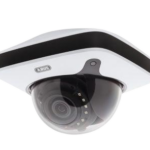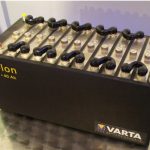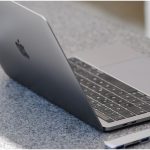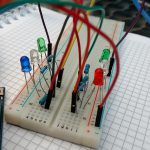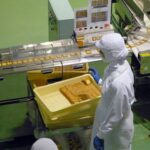
AI and manufacturing

Every passing day, in many factories around the globe, there are thousands of individuals peering at tiny, motherboards for hours searching for imperfections. It’s a very tedious job and the individuals are also prone to making errors once in a while. Andrew Ng, an artificial intelligence expert reckons that computers can the job better. Andrew has in the past helped Google and Baidu to integrate Artificial intelligent in their operation in the companies across the globe. Therefore, his claim is certainly empirical.
Andrew formerly worked at Baidu as the head of AI. He is the creator of deep-learning Google Brain project and the current CEO of a startup called Landing.AI. Landing. AI targets to help companies come up with ways of incorporating AI into their operations. The startup has been in existence for close to four months now and is based in Palo Alto, California. It is currently working with manufacturers like Foxconn, the world’s largest manufacturer of iPhones, to come up with ways of incorporating AI in the manufacturing processes in a bid to improve product output and quality control. Andrew has evidently been ahead of his peers when it comes to incorporating Artificial Intelligence (AI )with company operations. Therefore, his recent attempts to introduce AI into manufacturing companies is a good gesture that manufacturing could, after all, be ripe for transformation.
Scope of Incorporation

Andrew was tight-lipped on how Landing.AI technology will be incorporated by Foxconn or any other of the manufacturers they are currently working with. However, he said that going forward, he expects and the AI to be incorporated in visual inspection among other operations. He further revealed that his team has come up with learning algorithm which they have trained using a couple of images and could be used to spot imperfections in tiny electronic components. He also expressed his confidence in the startup saying that he believes Landing.AI has a firm grasp on how to use AI to tune the performance of manufacturing machines, for instance, the injection molding machines.
While echoing Andre’s sentiments, Willy Shih, a Harvard Business school professor, said that the incorporation of AI for visual inspections makes a lot of sense more so for companies like Apple that look forward to squeezing more and more electronics into tiny packages. He also acknowledged that greater component density leads to production problems. The professor who is currently studying manufacturing and technology pointed out that many things are getting tinier, for instance, solder balls between chips and circuit boards yet they still demand perfection making visual inspection a crucial part of the manufacturing process.
AI and job security

There have been rising concerns that AI will replace humans in production lines. While addressing these concerns, Andrew said he hopes to help employees to learn the skills they will require to execute the tasks that come with the incorporation of AI in production. He further reassured worried employees that despite the potency of AI, there are numerous tasks that AI will not be able to replicate hence people need not worry very much about the encroachment of AI into this new frontier of manufacturing.









